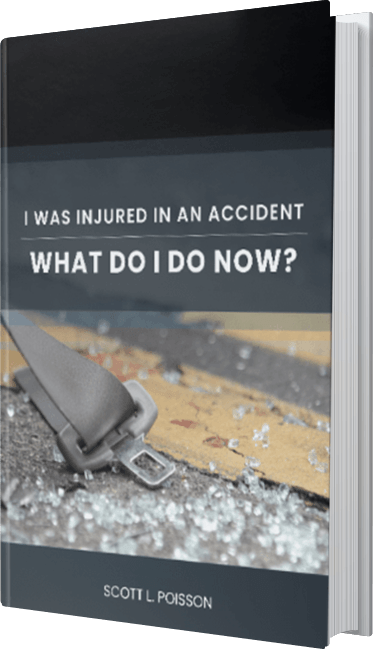The Legal Responsibilities of Property Owners in Slip and Fall Accidents
September 11, 2023

What Are the Legal Responsibilities of Property Owners in Slip and Fall Accidents?
Property owners, whether they are private homeowners or commercial property owners, have a legal obligation to maintain their premises in a reasonably safe condition. If they fail to do so, and someone is injured as a result of that failure, the injured party may have the right to seek compensation for their medical expenses, lost wages, pain and suffering, and other damages.
What Constitutes a Slip and Fall Accident?
A slip and fall accident occurs when an individual slips, trips, or falls on someone else’s property due to dangerous conditions. These conditions can include wet floors, uneven surfaces, poor lighting, or even debris left in walkways. To establish liability in a slip and fall case, the injured party must prove that the property owner was negligent in maintaining a safe environment.

In legal terms, negligence refers to the failure to exercise reasonable care, resulting in harm to another person. In slip and fall cases, property owners have a duty of care to maintain their premises in a reasonably safe condition. This duty includes regularly inspecting the property, promptly addressing any hazards, and providing adequate warnings to visitors.
Common causes of slip and fall accidents include:
- Wet or slippery floors, due to spills, recent cleaning, or weather-related conditions such as rain, snow, or ice.
- Uneven surfaces, such as cracked or uneven sidewalks, potholes, or unexpected steps.
- Poor lighting, which can prevent a person from seeing obstacles or changes in the walking surface.
- Cluttered walkways or aisles, such as cords, debris, or other obstacles that might not be immediately apparent.
- Loose or missing handrails on stairs or ramps.
What Are Some Relevant Laws?
In Nevada, the legal responsibilities of property owners in slip and fall accidents are governed by premises liability laws. These laws hold property owners accountable for injuries that occur on their premises due to their negligence. Under Nevada law, property owners owe different levels of care to different types of visitors:
1. Invitees: These are individuals who are invited onto the property for business purposes, such as customers in a store. Property owners owe invitees the highest level of care and must take reasonable steps to ensure their safety.
2. Licensees: Licensees are individuals who have permission to enter the property but for non-business purposes, such as social guests. Property owners must warn licensees of any known hazards that may not be obvious.
3. Trespassers: While property owners generally owe a lesser duty of care to trespassers, they still cannot intentionally harm them or create dangerous conditions with the intent to harm.
Even if you were partially at fault for the accident, you may still be eligible to recover damages under Nevada’s comparative negligence law. This law allows for the allocation of fault between the parties involved, and your compensation may be reduced based on your percentage of fault.
How Much Compensation Can I Earn?
The amount of compensation you may receive in a slip and fall case depends on various factors, including the severity of your injuries, the impact on your daily life, and the extent of the property owner’s negligence. While it is impossible to predict an exact settlement amount, understanding the potential damages can provide some insight.
In Nevada, slip and fall accident victims may be entitled to both economic and non-economic damages. Economic damages include medical expenses, lost wages, and rehabilitation costs. Non-economic damages, on the other hand, compensate for pain and suffering, emotional distress, and loss of enjoyment of life.

Nevada has a statute of limitations for personal injury cases, including slip and fall accidents. Generally, you have two years from the date of the accident to file a lawsuit. Failing to meet this deadline may result in your case being dismissed, so it’s crucial to consult with an experienced lawyer as soon as possible.
How Can an Experienced Lawyer Help?
Navigating the legal process can be complex, especially when dealing with slip and fall accidents. An experienced lawyer can guide you through the entire process, ensuring your rights are protected and maximizing your chances of receiving fair compensation.
A skilled attorney will investigate the accident, gather evidence, and identify any potential witnesses. They will negotiate with insurance companies on your behalf and, if necessary, litigate your case in court. Additionally, a lawyer with knowledge of Nevada’s specific case law and statutes can provide valuable insights and build a strong legal strategy tailored to your situation.
Slip and fall accidents can have serious consequences, but understanding the legal responsibilities of property owners can help you seek the compensation you deserve. If you or a loved one has been injured in a slip and fall accident in Nevada, call High Stakes Injury Law at (702) 707-5934 for a free case evaluation.
Get A 100% Free Case Evaluation
From A Top-Rated Personal Injury Attorney
Call: (702) 707-5934 or Contact Us Online
$9M
Settlement / Auto Accident
$5.1M
Settlement / Tire Explosion
$3M
Settlement / Truck Accident
01
02
03
04

I Was Injured In An Accident.
What Do I Do Now?
By Scott L. Poisson

Do I Have A Case?

Dealing With The Insurance Company

When a Lawsuit Is Filed

Overcoming Common Defense Themes

Special Considerations in Specific Types of Cases
